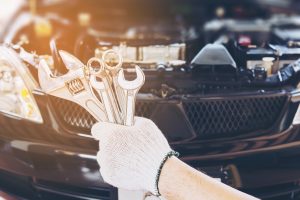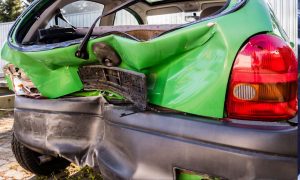When acquiring a new car, you typically have two main options: leasing or buying. But which option is better in 2025? With rapid advancements in automotive technology, including electric and autonomous vehicles, it is essential to weigh the pros and cons of each choice based on your financial situation, lifestyle, and long-term goals.
This article discusses the advantages and disadvantages of leasing versus buying a car, including financial implications, maintenance responsibilities, tax benefits, and how emerging technologies may influence your decision.
Understanding the Basics: Leasing vs. Buying
Before diving into the details, let’s break down how leasing and buying a car work: Understanding these differences can help you make an informed decision that aligns with your budget and driving preferences.
Leasing a Car
Leasing a car means you pay for its use over a fixed period (usually 24 to 36 months) with the option to return it, renew the lease, or purchase it at the end of the term. Monthly payments are generally lower than those for buying, but you don’t own the vehicle unless you choose to buy it.
Buying a Car
When you buy a car, you pay the full price upfront or finance it through a loan. Once the loan is paid off, the vehicle is yours to keep, sell, or trade-in. Buying a car is a long-term investment that can be more cost-effective.
Each option has benefits and drawbacks, depending on factors such as usage, financial capability, and ownership preference.
Financial Comparison: Leasing vs Buying a Car
Cost is one of the most significant factors in deciding between leasing and buying. Here’s how they compare financially:
Short-Term Costs
Leasing is generally more affordable in the short term. Your monthly payments are lower than a car loan since you’re only paying for the vehicle’s depreciation during the lease period. Additionally, leases often require little to no down payment, making them an attractive option for those with limited upfront capital.
Long-Term Costs
Buying a car is more cost-effective in the long run. Once you’ve paid off your loan, you own the vehicle outright and no longer have monthly payments. If you plan to keep your car for many years, buying saves you more money than leasing, where you continuously make payments.
Tax Benefits for Businesses and Self-Employed Individuals
If you use a car for business purposes, leasing may offer tax advantages, as lease payments can often be deducted as a business expense. On the other hand, if you buy a car, you may be eligible for depreciation deductions over several years and interest deductions on the car loan. The best option depends on your tax situation, so consulting a tax advisor is recommended.
Car Maintenance: A Key Factor in Your Decision
Keeping a vehicle in good condition is essential, whether you lease or buy. Regular maintenance ensures the car remains reliable and safe while helping you avoid costly repairs. Maintenance costs vary depending on whether you lease or buy:
- Leasing: Most leased cars remain under warranty, meaning maintenance and repair costs are minimal. However, you must return the vehicle in good condition or face penalties for excessive wear and tear.
- Buying: Once the manufacturer’s warranty expires, you’re responsible for all maintenance costs. However, you can choose how much to spend on repairs and maintenance, making ownership more flexible in the long run.
Maintenance Tips for Busy Professionals:
- Keep an emergency kit in your vehicle, including jumper cables and a tire repair kit.
- Monitor your tire pressure regularly to improve fuel efficiency and extend tire lifespan.
- Regular oil changes and tire rotations prolong your car’s lifespan.
- Checking and replacing fluids prevents major mechanical issues.
- Following manufacturer-recommended service schedules keeps your car in optimal condition.
The Impact of New Technologies: Autonomous Cars
The automotive industry is evolving, and emerging technologies like autonomous vehicles (AVs) and electric vehicles (EVs) could affect whether leasing or buying makes more sense.
Autonomous Vehicles: A Game Changer?
Fully autonomous (Level 5) vehicles are expected to hit the market in the 2030s, but partial automation features (like self-parking and adaptive cruise control) are already available. Leasing may be smarter if you want access to the latest technology without committing to a vehicle that could become outdated within a few years.
Electric Vehicles and Sustainability
With climate change concerns growing, EVs are becoming more popular. Leasing an EV allows you to upgrade to newer, more energy-efficient models as battery technology and charging infrastructure improves. If you’re considering an EV, leasing provides flexibility while avoiding long-term ownership risks associated with battery degradation.
Long-Term Considerations: Buy or Lease a Car?
Choosing between leasing and buying depends on your long-term financial stability and lifestyle preferences. Evaluating how often you switch vehicles and your ability to handle unexpected costs can help you make an informed decision.
Your long-term plans play a crucial role in deciding whether to lease or buy:
- Lease if you prefer driving a new car every few years and want predictable monthly payments without long-term ownership responsibilities.
- Buy if you plan to keep the car for many years and want to avoid continuous monthly payments after the loan is paid off.
Buying is the better option if you intend to drive the same car for over a decade. However, leasing offers more flexibility if you value having the latest model with updated features.
EcoFriendly and Environmental Considerations
As the world shifts toward greener solutions, eco-conscious consumers increasingly consider electric and hybrid vehicles. Opting for a fuel-efficient car can significantly reduce carbon emissions and lower dependency on fossil fuels. Beyond personal benefits, driving an EV contributes to global sustainability efforts and cleaner air quality.
Key benefits of choosing an eco-friendly vehicle:
- Lower Carbon Footprint: EVs and hybrids produce fewer emissions than gasoline-powered cars, helping reduce air pollution.
- Energy Efficiency: Electric motors are more efficient than internal combustion engines, producing less energy waste.
- Government Incentives: Many regions offer tax credits, rebates, and grants to encourage EV adoption.
- Cost Savings: EVs generally have lower maintenance costs since they have fewer moving parts and don’t require oil changes.
- Charging Infrastructure Growth: More cities are expanding their EV charging networks, making ownership more convenient.
- Exclusive Perks: Some areas offer benefits like reduced toll fees and access to carpool lanes for EV drivers.
Governments also provide incentives to encourage EV adoption, including tax credits, rebates, and special grants. Many cities are expanding charging infrastructure, making owning and operating electric vehicles more convenient. Additionally, some regions offer perks such as reduced toll fees and access to carpool lanes for EV drivers. If you’re environmentally conscious, leasing might be a better choice since you can continually upgrade to the latest green technology.
Conclusion
The best choice depends on your financial goals and lifestyle. Lease if you enjoy driving new cars frequently and want lower monthly payments without long-term commitments. Buy if you prefer long-term savings and ownership benefits.
With advancements in electric and autonomous vehicles, leasing offers flexibility, while buying provides long-term value. Before making your decision, consider the total cost of ownership, tax benefits, and maintenance needs.
Frequently Asked Questions
Leasing means paying for the use of a vehicle over a set period without ownership, whereas buying involves full ownership after paying the full price or loan.
Leasing usually has lower monthly payments than buying since you only cover depreciation costs.
Yes, once the car loan is paid off, there are no ongoing monthly payments, making it more cost-effective.
Leasing may allow businesses to deduct lease payments, while buying may provide tax benefits through depreciation deductions. Consult a tax advisor for details.
Leasing is ideal for those who like driving new cars every few years and want predictable costs with minimal maintenance responsibilities.
Buying is better for those who want long-term savings, ownership equity, and flexibility in modifying or reselling the vehicle.
Leasing generally includes warranty coverage and minimizes repair costs, though excessive wear may lead to extra fees. Buying requires owners to handle all maintenance after the warranty expires but offers flexibility in choosing service providers and repairs.
Leasing offers access to the latest EV and autonomous technology without a long-term commitment, and buying an EV is ideal for those planning to keep an EV for years.
Yes, leasing an EV allows you to upgrade to newer models as battery technology improves and avoids long-term concerns over depreciation and charging infrastructure.






